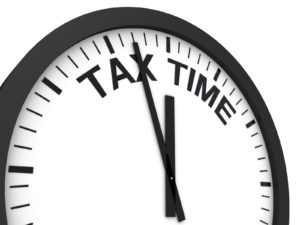You can always deduct standard business expenses, but can you deduct hidden and unusual expenses to reduce your tax burden? With imagination and proactive tax planning, the answer to that question is: “Yes you can!”

IF YOU THINK YOU’RE PAYING TOO MUCH IN FEDERAL INCOME TAX, YOU PROBABLY ARE! The old paradigm was “Those who can afford the expense, hire Enrolled Agents and Tax Consultants. The new paradigm is, is that you really can’t afford not to. We seek a second opinion on legal and medical matters, but not so much in the area of income tax, the largest burden your government places upon you…Why?
 Sometimes the hardest thing about saving money is just getting started. It can be difficult to figure out simple ways to save money and how to use your savings to pursue your financial goals.
Sometimes the hardest thing about saving money is just getting started. It can be difficult to figure out simple ways to save money and how to use your savings to pursue your financial goals.
Tip 3: Now that you’ve made a budget, create a savings category within it. Try to put away 10–15 percent of your income as savings. If your expenses are so high that you can’t save that much, it might be time to cut back. To do so, identify non-essentials that you can spend less on, such as entertainment and dining out.
Tip: Considering savings a regular expense, similar to groceries, is a great way to reinforce good savings habits.
 Sometimes the hardest thing about saving money is just getting started. It can be difficult to figure out simple ways to save money and how to use your savings to pursue your financial goals.
Sometimes the hardest thing about saving money is just getting started. It can be difficult to figure out simple ways to save money and how to use your savings to pursue your financial goals.
Tip 2: Once you have an idea of what you spend in a month, you can begin to organize your recorded expenses into a workable budget. Your budget should outline how your expenses measure up to your income—so you can plan your spending and limit overspending. In addition to your monthly expenses, be sure to factor in expenses that occur regularly but not every month, such as car maintenance.
 Millions of people enjoy hobbies that are also a source of income. From catering to cupcake baking, crafting homemade jewelry to glass blowing — no matter what a person’s passion, the Internal Revenue Service offers some tips on hobbies.
Millions of people enjoy hobbies that are also a source of income. From catering to cupcake baking, crafting homemade jewelry to glass blowing — no matter what a person’s passion, the Internal Revenue Service offers some tips on hobbies.
Taxpayers must report on their tax return the income earned from hobbies. The rules for how to report the income and expenses depend on whether the activity is a hobby or a business. There are special rules and limits for deductions taxpayers can claim for hobbies. Here are five tax tips to consider: Continue reading
 What is your tax background? A slew of letters following a name on a business card doesn’t necessarily mean more qualified. It can mean that the person has passed certain tests or has specific tax training. So ask what those letters mean – and how they would relate to the preparation of your return. Don’t be blinded by the alphabet soup. Here’s a quick guide to help you sort it out in advance:
What is your tax background? A slew of letters following a name on a business card doesn’t necessarily mean more qualified. It can mean that the person has passed certain tests or has specific tax training. So ask what those letters mean – and how they would relate to the preparation of your return. Don’t be blinded by the alphabet soup. Here’s a quick guide to help you sort it out in advance:
As the start of tax filing se ason approaches, the Internal Revenue Service is reminding taxpayers to start thinking about who will prepare their 2016 federal tax return. The IRS will begin processing tax returns on Monday, January 23. Many software companies and tax professionals will accept and submit tax returns before the IRS systems open on January 23.
ason approaches, the Internal Revenue Service is reminding taxpayers to start thinking about who will prepare their 2016 federal tax return. The IRS will begin processing tax returns on Monday, January 23. Many software companies and tax professionals will accept and submit tax returns before the IRS systems open on January 23.
In 2016, more than 131 million individual and family tax returns were e-filed, the most accurate, safest and easiest way to file. The rest of the returns received by the IRS, numbering over 19 million, were either prepared on a computer and printed or prepared by hand then mailed.
 Mistakenly classifying an employee as an independent contractor can result in significant fines and penalties. There are 20 factors used by the IRS to determine whether you have enough control over a worker to be an employer. Though these rules are intended only as a guide-the IRS says the importance of each factor depends on the individual circumstances-they should be helpful in determining whether you wield enough control to show an employer-employee relationship. If you answer “Yes” to all of the first four questions, you’re probably dealing with an independent contractor; “Yes” to any of questions 5 through 20 means your worker is probably an employee.
Mistakenly classifying an employee as an independent contractor can result in significant fines and penalties. There are 20 factors used by the IRS to determine whether you have enough control over a worker to be an employer. Though these rules are intended only as a guide-the IRS says the importance of each factor depends on the individual circumstances-they should be helpful in determining whether you wield enough control to show an employer-employee relationship. If you answer “Yes” to all of the first four questions, you’re probably dealing with an independent contractor; “Yes” to any of questions 5 through 20 means your worker is probably an employee.
1. Profit or loss. Can the worker make a profit or suffer a loss as a result of the work, aside from the money earned from the project? (This should involve real economic risk-not just the risk of not getting paid.)
2. Investment. Does the worker have an investment in the equipment and facilities used to do the work? (The greater the investment, the more likely independent contractor status.)
3. Works for more than one firm. Does the person work for more than one company at a time? (This tends to indicate independent contractor status, but isn’t conclusive since employees can also work for more than one employer.)
4. Services offered to the general public. Does the worker offer services to the general public?
5. Instructions. Do you have the right to give the worker instructions about when, where, and how to work? (This shows control over the worker.)
6. Training. Do you train the worker to do the job Continue reading
 The Internal Revenue Service is hiring up to 700 employees for tax enforcement in what Commissioner John Koskinen calls the agency’s “first significant enforcement hiring in more than five years.”
The Internal Revenue Service is hiring up to 700 employees for tax enforcement in what Commissioner John Koskinen calls the agency’s “first significant enforcement hiring in more than five years.”
In a memo to employees Tuesday, Mr. Koskinen said the IRS found money for the hiring—despite budget constraints—because of retirements, other departures and unspecified “efficiencies.” The first wave of hiring will begin in a few weeks and will be concentrated in the IRS department that monitors small businesses and the self-employed.
“While adding 600 to 700 new enforcement hires will not replace those who have left, it will help fill key gaps in our enforcement workforce created by Continue reading